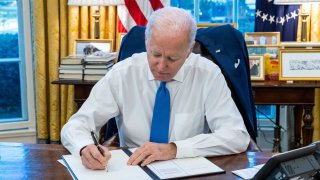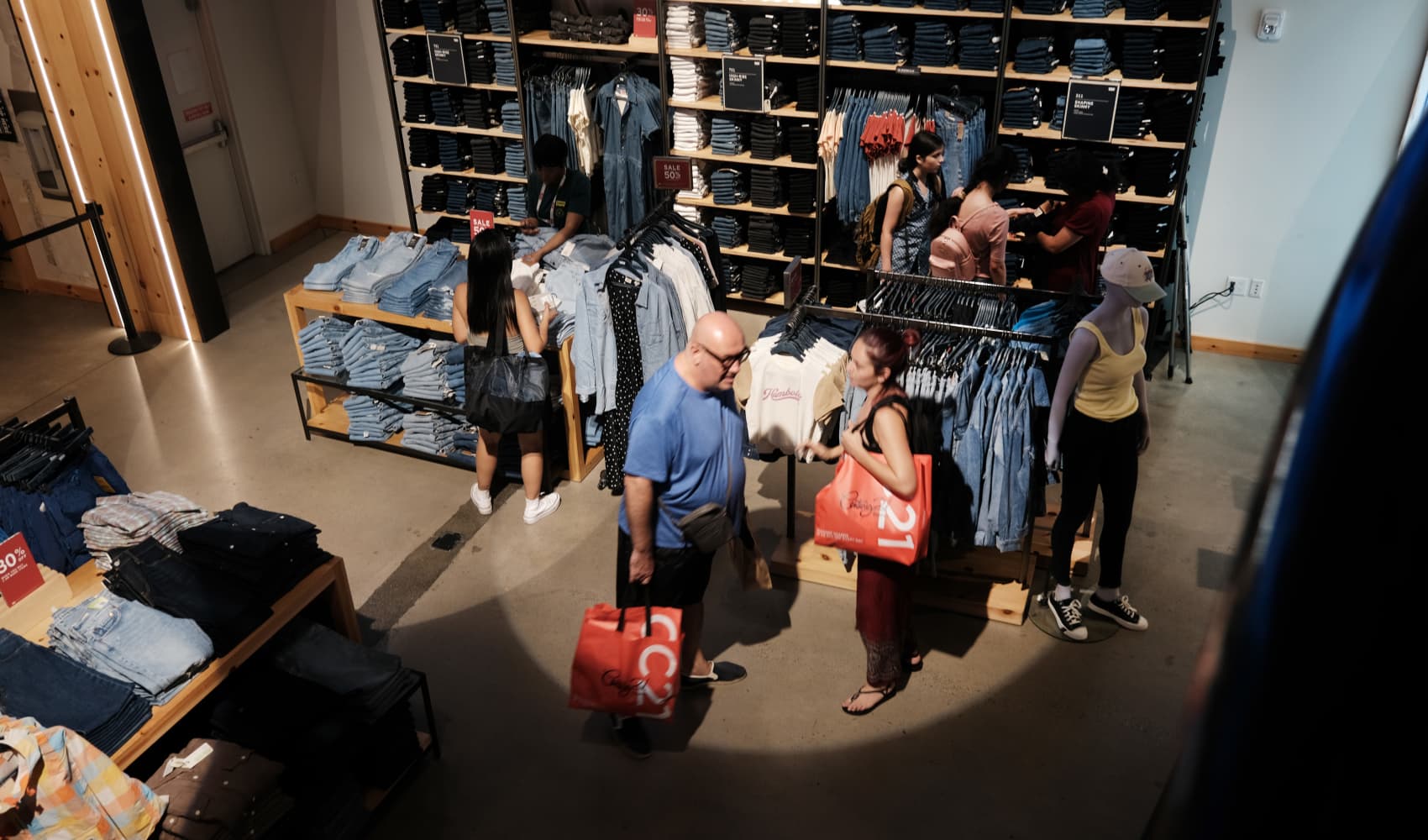
- The United States, the United Kingdom and the European Union have hit Russia with sanctions following its military incursion into Ukraine.
- This week's action in the region has whipsawed global financial markets.
- Armed military conflict is a threat to global stability, and nations may respond in a manner that's more economic.
Since the middle of the 20th century, with the introduction of thermonuclear weapons, the entire planet has been consumed by worries about the prospect of World War III.
But a new global risk is emerging: the advent of economic warfare.
It's true that armed military conflict remains a threat to global stability, as in the case of the Russian invasion of Ukraine. The response to kinetic warfare may be increasingly economic.
Get Tri-state area news and weather forecasts to your inbox. Sign up for NBC New York newsletters.
As the Western world imposes sanctions on Russia, there could be similar penalties for other bad actors who become more militarily inclined.
China, watching closely the West's response to Russia's attempted annexation, may one day move on Taiwan, creating a multifront military challenge for the U.S., U.K., EU, India, Japan, South Korea and Australia.
The notion that allied countries would attempt to fight Russia and China on the streets of Kyiv and Taipei is virtually inconceivable, as multiple nuclear superpowers could be tempted, at some critical juncture, to engage in the unthinkable.
Money Report
Against that backdrop, the use of broad and deep economic sanctions that isolate Russia and China from the Western democratic and capitalist world would be a much more likely and impactful response.
Old enmities have surfaced
While such a scenario has been unthinkable since the fall of the Berlin Wall and the opening of China at the end of the 20th century, it appears now to be a distinct possibility that old enmities and enemies have surged to the surface of foreign affairs.
This geopolitical divide has reemerged just as the world economy is in the process of deglobalizing. Until recently globalization was thought to be a stabilizing force that would harmonize international economic interests while reducing the risks of devastating global warfare.
Regrettably, it seems the ghosts of a presumed bygone era have come back to life, suggesting that "the end of history" was a conceptual construct with no basis in reality.
Further, the pandemic laid bare the uneven trade-off between supply chain efficiencies and supply chain security.
As each country seeks to rebuild not only critical infrastructure but also key domestic industries, a scenario in which economic warfare becomes more likely is infinitely more plausible in the current context.
Global economic consequences
It will bring consequences for the global economy and financial markets.
Global markets have been reeling from the invasion of Ukraine.
The Russian stock market — already down sharply since October's peak, even amid surging oil prices, on which it depends — tumbled more than 30% this week.
That's before the full force of Western sanctions has been put in place.
It's not hard to envision a similar and equally punitive set of sanctions being aimed squarely at Beijing if it were to move on Taiwan. That could include targeting the Chinese Communist Party's elite, the country's billionaires and wealthy generals, and, most important, cutting China off from Western markets, on which it still heavily relies to maintain already slowing economic growth.
If that moment comes, it will not replace the risks of kinetic warfare, certainly not on a regional basis.
But globally, economic warfare could shake growth and stability, especially if it includes cyberattacks that could cripple crucial systems. That ranges from the most basic financial transfers to the most hardened critical infrastructure, from water purification to global electrification.
The U.S. is no more prepared for a retaliatory response of that nature than Russia and China are prepared to be isolated from the rest of the world.
It may not be the war our generation has always feared, but it may be the war this generation faces next, with long-lasting and severe consequences.
— Ron Insana is a CNBC contributor and a senior advisor at Schroders.






